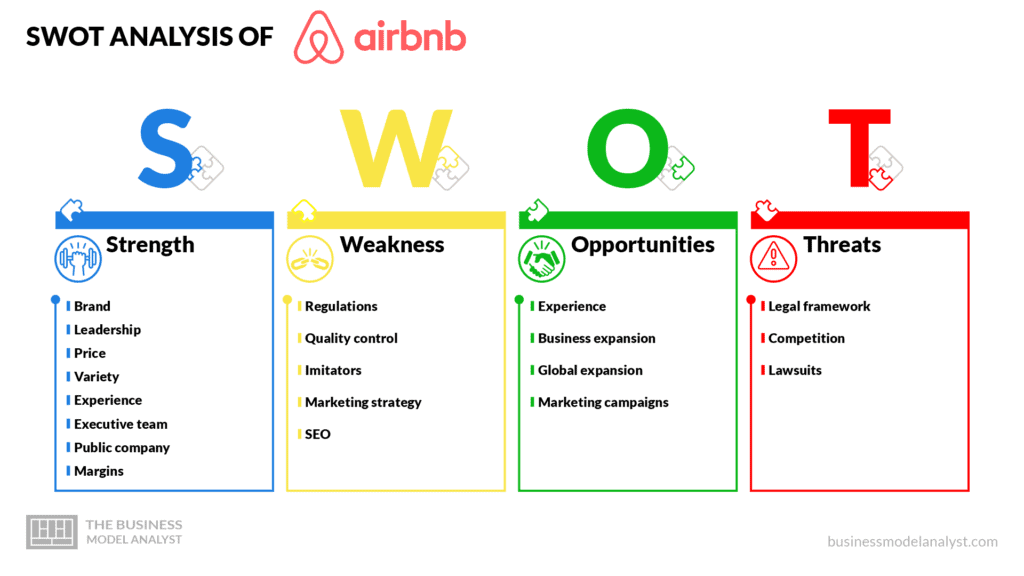Introduction
Founded in 2008, Airbnb has transformed the hospitality industry by pioneering a peer-to-peer marketplace for lodging and experiences. This case study explores Airbnb’s innovative business model, examining key components that have fueled its rapid growth and global success.
Key Elements of Airbnb's Business Model

- Peer-to-Peer Marketplace: Airbnb operates a digital platform that connects hosts (property owners) with guests seeking short-term accommodations. This peer-to-peer model leverages the sharing economy, enabling individuals to monetize underutilized living spaces and providing travelers with diverse lodging options.
- Diverse Accommodation Options: Airbnb offers a wide range of accommodations, including apartments, houses, villas, and unique properties (e.g., treehouses, castles). This diversity caters to varying traveler preferences, from budget-conscious backpackers to luxury seekers.
- User-Generated Content and Trust: User-generated reviews and ratings play a crucial role in Airbnb’s business model, fostering transparency and trust within the community. Guests can make informed booking decisions based on peer feedback, enhancing overall satisfaction and reliability.
- Dynamic Pricing and Flexibility: Airbnb employs dynamic pricing algorithms that adjust rates based on factors such as demand, location, and seasonal trends. Hosts have flexibility in setting prices, optimizing revenue potential, while guests benefit from competitive pricing and value.
- Host and Guest Support: Airbnb provides comprehensive support for hosts and guests, including customer service, insurance coverage (e.g., Host Guarantee), and dispute resolution mechanisms. This support infrastructure enhances safety, reliability, and peace of mind for users.
- Local Experiences and Community Engagement: Beyond accommodations, Airbnb promotes local experiences through its Experiences platform. Hosts offer guided tours, cooking classes, and cultural activities, fostering cultural exchange and immersive travel experiences.
Case Examples of Airbnb's Business Model

- Global Expansion: Airbnb’s scalable platform facilitates global reach, operating in over 220 countries and regions with localized services and multilingual support.
- COVID-19 Adaptation: During the pandemic, Airbnb pivoted its business model to emphasize longer-term stays and enhanced cleaning protocols, addressing evolving consumer preferences and health concerns.
Challenges and Criticisms
Despite its success, Airbnb faces regulatory challenges, concerns over neighborhood impacts (e.g., housing affordability, noise), and issues related to safety and security. Balancing innovation with regulatory compliance and community relations remains a complex challenge for the company.
Conclusion
Airbnb’s disruptive business model exemplifies the transformative potential of the sharing economy and digital platforms in redefining traditional industries. By empowering individuals to participate in hospitality services and fostering community-driven experiences, Airbnb continues to reshape travel and accommodation norms globally.
Future Outlook
As Airbnb navigates post-pandemic recovery and future growth, its focus on sustainability, regulatory collaboration, and technology innovation will shape its trajectory. Adapting to evolving consumer preferences and advancing community-centric initiatives will be crucial for sustaining competitive advantage and fostering long-term success.
References
- Airbnb, Inc. (Official Website)
- Industry Reports and Analysis
- Academic Research on Sharing Economy and Digital Platforms




